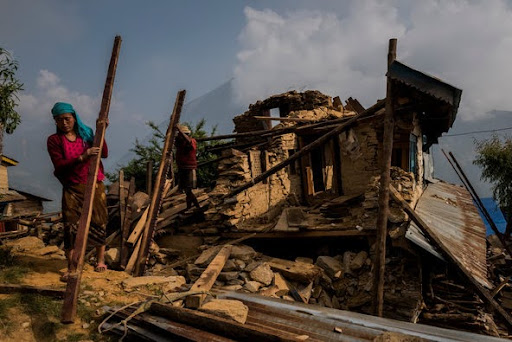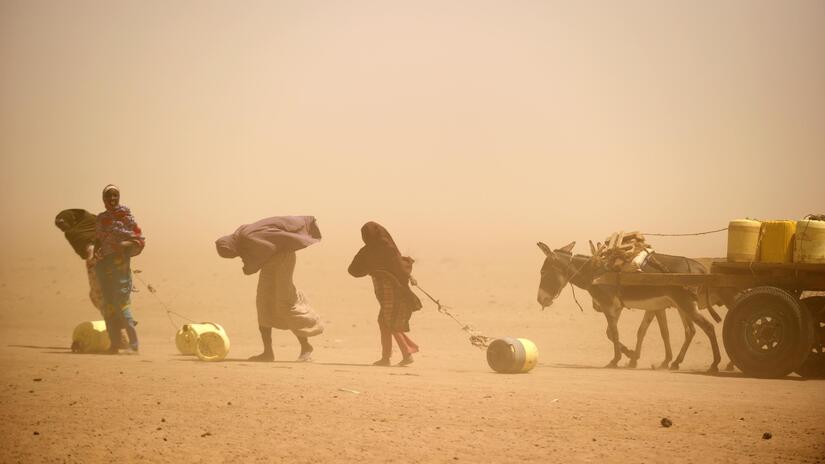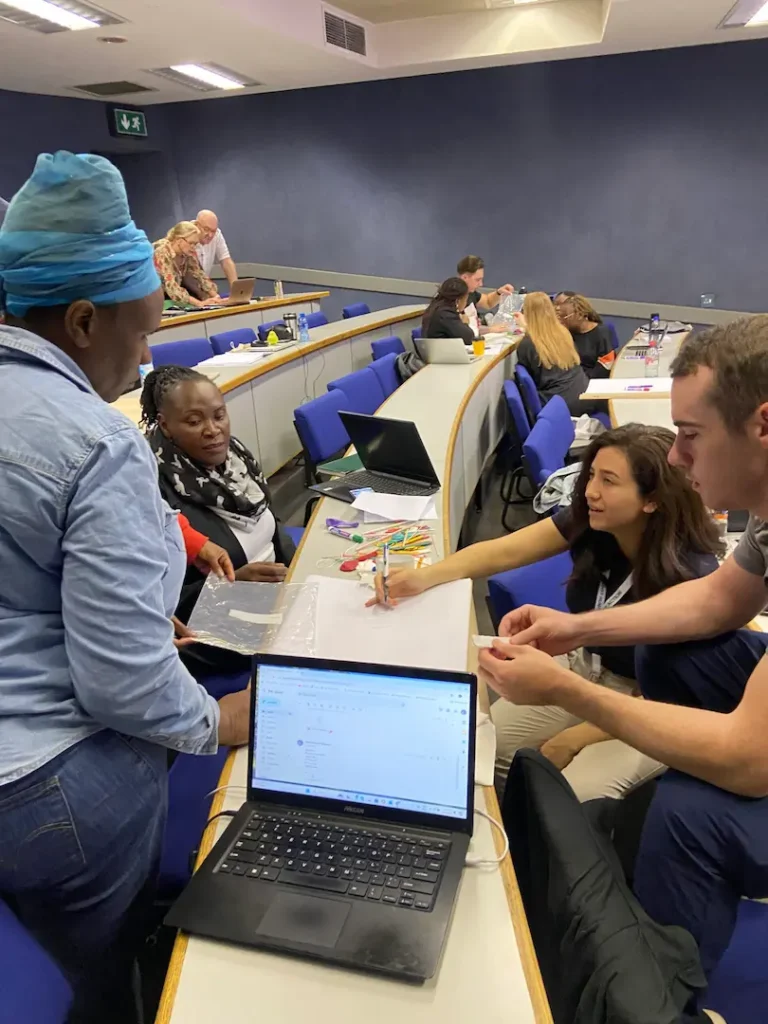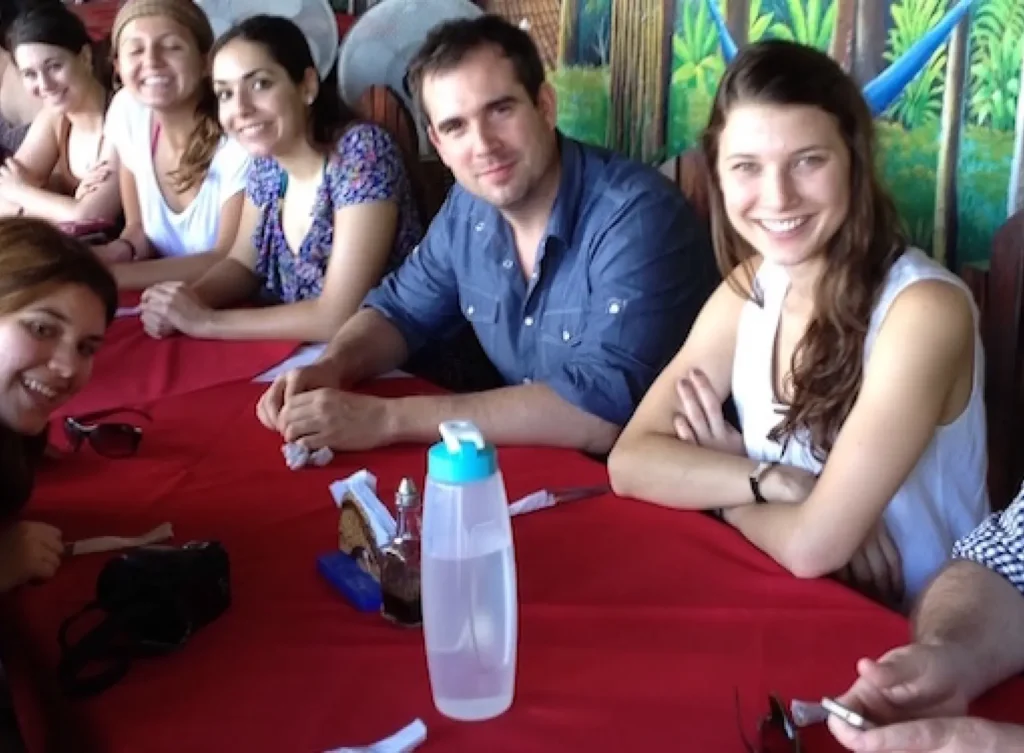The Institute of International Humanitarian Affairs offers non-credit professional courses for practitioners around the world. Each professional course for Spring 2026 is designed to prepare current and future aid workers with the knowledge and skills needed to respond effectively to humanitarian crises and disasters.
Semester-long courses include:
All Spring 2026 semester-long courses listed can be taken for 3 academic credits or for a Certificate of Completion from Fordham University at a reduced cost. These courses are taught at the graduate level.
Cost with Academic Credit: View GSAS Tuition and Fees
Cost for Certificate: $990
*Course Dates: January 12, 2026 – May 11, 2026
*Course dates may vary slightly according to each syllabus. Please check with your professor.
Deadline to apply: December 30, 2025
** PLEASE READ **
Visa Requirements:
If you’re an international applicant seeking a non-immigrant visa to enter the US, please note taking this course alone does not qualify you for a student visa (F-1).
Payment:
Payment is due only after you have received your visa.
What the course fee covers:
Enrolling in any Humanitarian Training Course (HTC) will only cover the course content. None of these courses cover any form of accommodations or travel. Any personal costs will be the sole responsibility of the student.
Scholarship:
There is no funding available to support students for any of the upcoming Spring 2025 Humanitarian Training Courses. Whether you are enrolling as a certificate student (no academic credit) or a credit-bearing student, you will be fully responsible for paying your tuition fees.
Thursdays 5:30pm-7:15pm
Synchronous Online
HUST 5012 This course offers a deep dive into the evolving world of humanitarian response. By examining real-world crises and the challenges faced by humanitarian actors, this course provides a unique opportunity to understand how the humanitarian system is adapting to new threats and promoting localization. Through active learning and expert insights, students will gain valuable knowledge and skills to contribute to a more effective and equitable humanitarian future.
Upon fulfilling the course requirements described in the syllabus, students will receive a Certificate of Completion from Fordham University.
This course will…

Example Units:
| Humanitarian Aid: Accountable to Whom, and What for? | What Does It Mean to be Food Insecure? | Humanitarian Futures: What Are Our Strengths? | Humanitarian Origins: Neo-Colonialist and Racist? |
Wednesdays, 5:30 pm – 7:15 pm | Lincoln Center
This course will provide students with a thorough overview of the
issues relating to forced displacements and migrations of people around the world. Students will learn of the international legal frameworks under which different types of migration are defined and legislated for. They will also learn from eye witnesses and historical accounts of the impact forced migrations have had on individuals and communities including people smuggling, trafficking, exploitation and modern slavery. Course material includes lectures, readings and multimedia presentations.
Migration is a growing phenomena which is often at the top of the agenda in the media, political discourse, government policy and public opinion. Unfortunately it is also the source of much misinformation and prejudice. When migration is forced, assistance to those displaced becomes a major focus of activity for humanitarians, their donors, the governments and communities of affected countries. This course will enable students to confidently engage on the issue of migration. In their future careers they will be enabled to interact with policy makers, those who implement policy and external actors in a knowledgeable, evidence based manner, demonstrating leadership and clarity of thought.
Upon fulfilling the course requirements described in the syllabus, students will receive a Certificate of Completion from Fordham University.


Mondays, 5:30 pm – 7:15 pm | Lincoln Center
This course offers a comprehensive introduction to the principles and methods of assessing humanitarian programs. By learning how to design and implement effective monitoring and evaluation strategies, students will gain the skills necessary to make informed judgments about the success of humanitarian interventions and contribute to more evidence-based decision-making in the field.
This course…

Example Units:
|
Fridays, 5:30 pm – 7:15 pm | Rose Hill
This course will explore the development and application of
International Humanitarian Law (IHL), also known as the law of armed conflict. IHL is a set of rules that, in times of armed conflict, seeks to protect people who are not or are no longer participating in hostilities, and to restrict the means and methods of warfare. The rules of IHL aim
to balance military necessity against fundamental principles of humanity. IHL also provides a normative framework to facilitate the delivery of aid by humanitarian organizations engaged in mitigating the suffering caused by armed conflict. Students will examine treaty law which forms the legal bases for IHL; in particular the four Geneva Conventions of 1949 and their additional protocols of 1977, in addition to customary international law. Students will study the principles of proportionality, distinction between military objectives and civilian objects and precautions in attack. They will also become familiar with weapons restrictions and prohibitions. This course is open to seniors.
This course will encourage students to consider…
“I had the pleasure of taking your Contemporary Issues in Humanitarian Action course, which deeply influenced my perspective on global humanitarian efforts. Your course provided me with invaluable insights into the challenges faced by humanitarian actors, particularly in light of current global crises, and I often reflect on the topics that we learned throughout the course almost everyday with what I hear on the news and on social media.”

May 2025 Master’s candidate in Ethics and Society